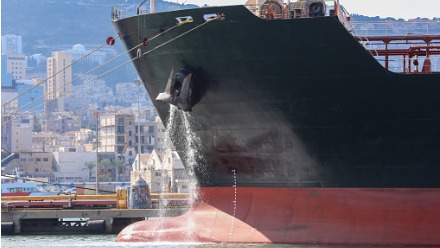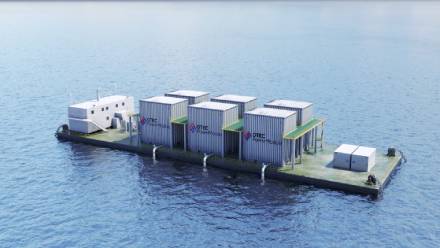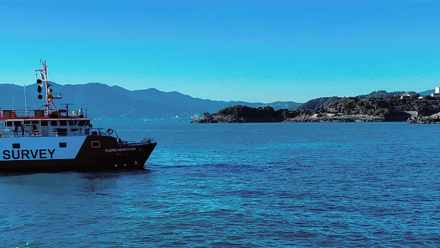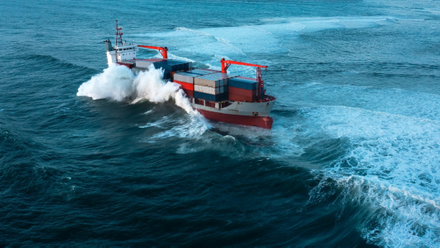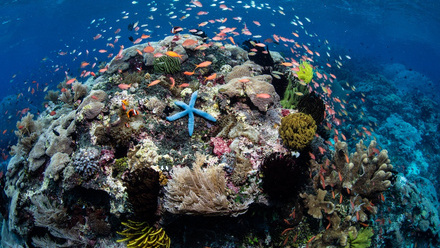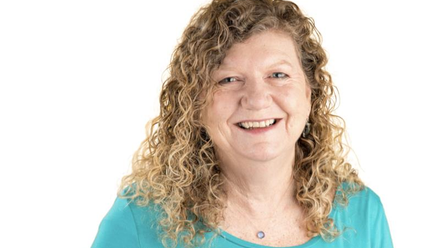How climate change is directly affecting seafarers
Extreme weather change and sea level rises are severely impacting the lives of those at sea.
Against the backdrop of a rancorous COP29, where world leaders yet again pledged action to curb dangerous levels of global warming alongside widespread criticism from several parties, there’s growing awareness that employers bear a duty of responsibility to protect workers from the worst extremes. Seafarers, already used to working in harsh environments, now increasingly face the hazards posed by extreme heat, more violent storms and melting sea ice.
At a recent joint IMO-WMO Symposium on Extreme Maritime Weather, WMO (World Meteorological Organisation) Deputy Secretary-General Ko Barrett revealed the many challenges the maritime sector faces due to climate change, specifically at ports due to rising sea levels, intense cyclones that endanger seafarers and hazardous sea routes opened up by melting Arctic sea ice. "Climate change affects maritime operations, whether at sea or in ports,” he said.
There can be deadly consequences. Last year a seafarer died, two collapsed and another suffered heat exhaustion symptoms while working in high temperatures on the Elpida GR bulk carrier in the port of Mesaieed, Qatar. The safety investigation concluded: “In view of the effects of climate change, it is likely that there may be an increase in such occurrences on board vessels, particularly when considering that the reason for crew members’ exposure to the sun and heat are due to the nature of the tasks on board.”
Direct experience
Master Mariner and IMarEST Fellow Ann Pletschke, who spent five years surveying ships in the Middle East, is well aware of extreme heat at sea.
“MLC [Maritime Labour Convention] introduced wider measures for habitability on vessels to cope with extreme temperatures although many vessels are still not covered by MLC and I've seen situations in the Middle East where ships have inadequate a/c,” she states. “Many ships also don't have drinking water fountains and extreme temperatures can mean seafarers either being dehydrated or getting through a lot of single-use plastic bottles of water.”
Over the last 18 months, Pletschke has been working in UK coastal waters where the risk is not one of extreme heat but of storms - unpredictable weather is a known result of climate change, and it’s a risk across the globe.
“We have seen a few maritime casualties recently caused by extreme weather, and when combined with geopolitical and conflict hazards, it is creating difficult situations,” Pletschke says, highlighting the grounding of the Panama-flagged general cargo ship, MV Ultra Galaxy, off South Africa’s west coast after it encountered severe weather in July 2024.
“With such a large amount of ships diverting round the Cape instead of through Suez due to Houthi missiles, more ships are put in areas of extreme weather; the coast is renowned for storms and freak waves,” she explains. “Could we see more cases like this due to climate change?”
As crew contend with increased frequency and intensity of heatwaves and storms, there are calls for greater focus on crew comfort, which in itself is now a class notation with recognised benefits to crew wellbeing and thus ship safety.
However as Pletschke points out: “Most of the world's newbuild tonnage is not being built to consider crew comfort to this level. For example, back when I first went to sea, it was common to have cabins with a bunk athwartships and a day bunk fore and aft so you could get good sleep regardless of whether pitching or rolling.
“Now many ships come out without a day bunk in a cabin that is long enough to sleep on, and some ships are built with the main bunk fore and aft, meaning the common movement of rolling will cause a worse night's sleep in extreme weather.”
As climate change continues to grow as a threat, the time to act on seafarer comfort and safety is now.
Discuss similar topics with the Human Element Special Interest Group.
Image: Containers are offloaded from a freighter at Hamad Port, Qatar; credit: Shutterstock.
Tell us what you think about this article by joining the discussion on IMarEST Connect.

